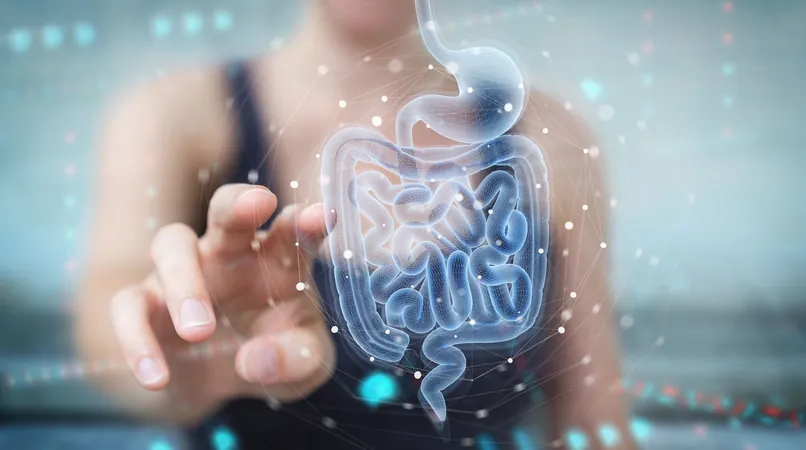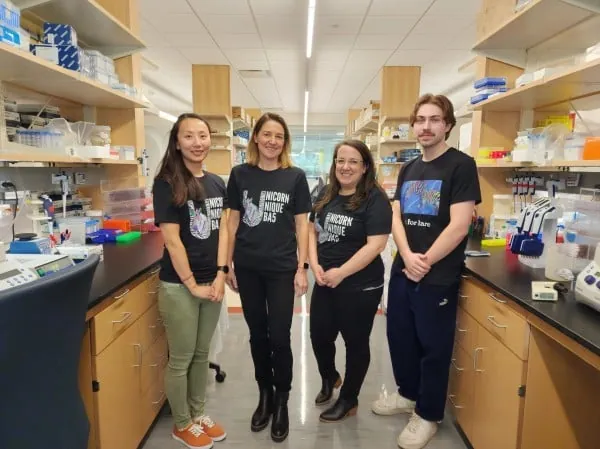
Revolutionary Discovery: Critical Immune Cells Protect Against Food Allergies
2025-04-16
Author: Arjun
Could the Key to Ending Food Allergies Be in Our Gut?
Recent research has unveiled a groundbreaking connection between essential immune cells in our intestines and the prevention of food allergies. A new study published in *Cell* reveals that the absence of these immune defenders leads to alarming inflammation and allergic reactions in laboratory mice.
Millions of people in the U.S., including about 4 million children, suffer from food allergies, where the body mistakenly identifies harmless foods—like eggs and nuts—as threats. This misidentification can result in dangerous, life-threatening reactions.
Immune Cells: The Unsung Heroes of Tolerance
The intestinal immune system is designed to distinguish between harmful invaders and benign substances, maintaining tolerance towards safe food proteins. This crucial role is played by a specific subset of immune cells known as RORγt+ T regulatory cells (pTregs). These cells help stave off conditions like food intolerance and inflammatory bowel disease.
Researchers conducted an experiment by genetically modifying mice to reduce RORγt+ antigen-presenting cells (APCs). By doing so, they aimed to uncover the role these cells play in managing allergies to oral food antigens, mimicking common allergens.
Unmasking the Allergy Connection: Insights from Mouse Models
In their experiments, the scientists administered ovalbumin—a notorious allergenic protein found in egg whites—to the mice. The results were shocking: the mice devoid of gut RORγt+ dendritic cells exhibited significant allergic lung inflammation, while those with these cells remained unaffected. Furthermore, a detailed analysis revealed an imbalance in the T cells responsible for immune response, tipping the scales in favor of those that provoke reactions. This discrepancy could be instrumental in understanding food allergies.
A Crescent of Hope in Allergy Management
According to Dr. Marco Colonna from WashU Medicine, this surge in food allergies has prompted a vital need for effective therapies. "Identifying the cells that foster tolerance can pave the way for innovative treatments that could help prevent or alleviate food allergies," he stated.
The study also showcased that RORγt+ dendritic cells share a lineage with another immune cell type, reinforcing their role in balancing gut immunity and potentially preventing allergies.
Empowering Immune Defense: A Future Pathway
The implications of this research are promising. Co-first study author Dr. Patrick Rodrigues emphasized that by understanding how to boost RORγt+ dendritic cells’ activity, we could shift the tide against food allergies. Because humans possess these cells, this discovery opens doors to new therapeutic strategies for managing allergies and related immune conditions such as celiac and inflammatory bowel diseases.
The Road Ahead: Exploring New Frontiers
While these findings shine a light on the importance of RORγt+ dendritic cells, researchers acknowledge that further investigation is needed to fully comprehend how these cells interact with dietary antigens and impact immune responses. Continued research will focus on clarifying their mechanisms and validating findings through advanced in vivo experiments.
Dr. Shitong Wu, another co-first author, believes that harnessing the power of these immune cell populations could potentially create therapies that provide enduring tolerance to food allergens. The future of allergy management could indeed lie in our gut's immune landscape!



 Brasil (PT)
Brasil (PT)
 Canada (EN)
Canada (EN)
 Chile (ES)
Chile (ES)
 Česko (CS)
Česko (CS)
 대한민국 (KO)
대한민국 (KO)
 España (ES)
España (ES)
 France (FR)
France (FR)
 Hong Kong (EN)
Hong Kong (EN)
 Italia (IT)
Italia (IT)
 日本 (JA)
日本 (JA)
 Magyarország (HU)
Magyarország (HU)
 Norge (NO)
Norge (NO)
 Polska (PL)
Polska (PL)
 Schweiz (DE)
Schweiz (DE)
 Singapore (EN)
Singapore (EN)
 Sverige (SV)
Sverige (SV)
 Suomi (FI)
Suomi (FI)
 Türkiye (TR)
Türkiye (TR)
 الإمارات العربية المتحدة (AR)
الإمارات العربية المتحدة (AR)